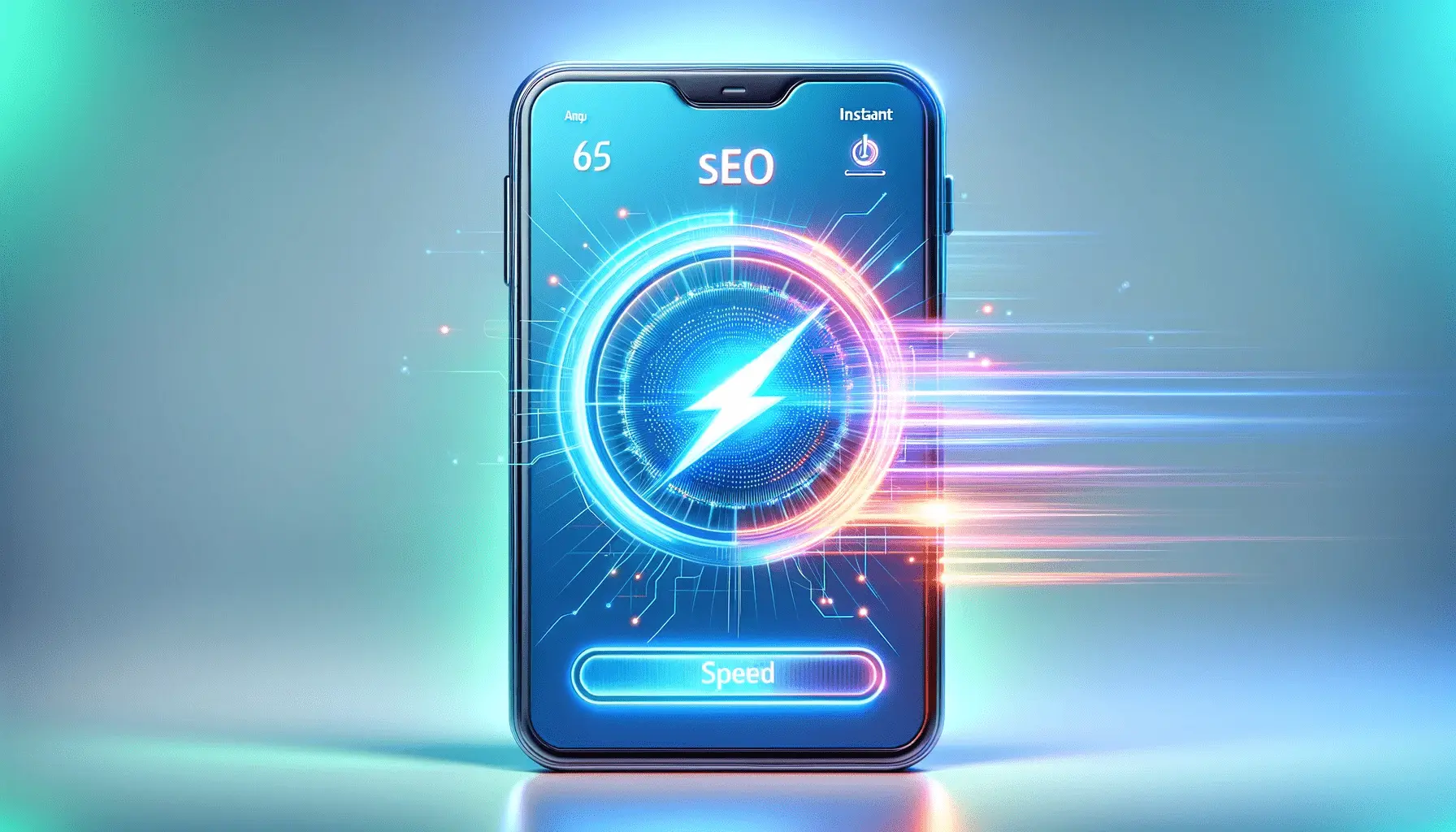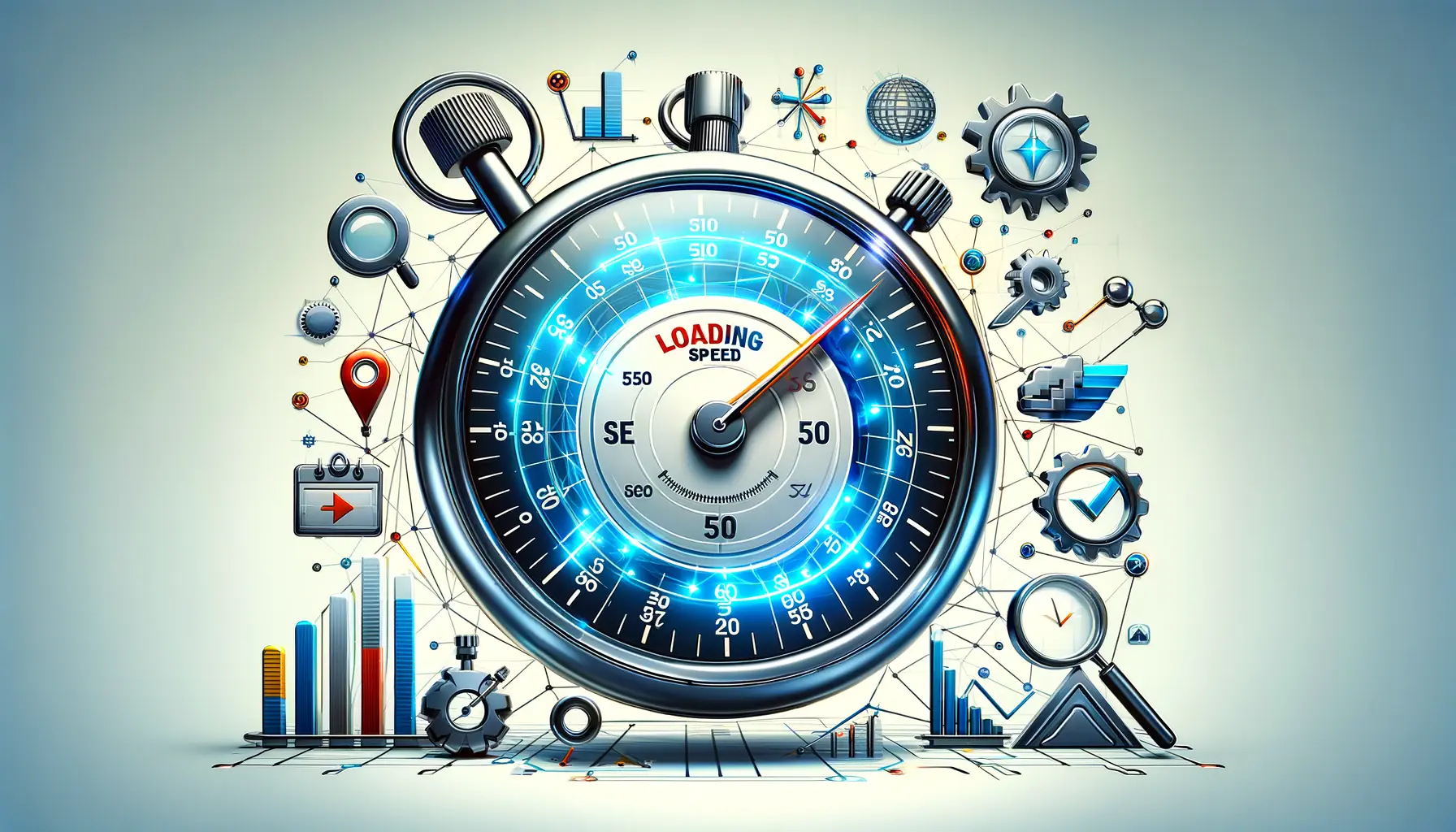The digital landscape is continuously evolving, with search engines becoming more sophisticated in how they interpret and rank content.
In this context, the role of social signals within on-page SEO has emerged as a topic of considerable debate and analysis.
Social signals refer to the collective likes, shares, comments, and overall engagement a piece of content receives on social media platforms.
While these signals are not direct ranking factors in the algorithms of major search engines like Google, their impact on SEO can be significant in indirect ways.
Understanding the relationship between social signals and on-page SEO is crucial for digital marketers and content creators aiming to optimize their online presence.
This article delves into the intricacies of this relationship, exploring how social engagement can influence search engine rankings and offering strategies to leverage these signals effectively.
By integrating social signals into your on-page SEO strategy, you can enhance your content’s visibility, drive more traffic to your website, and ultimately achieve better search engine rankings.
- The Importance of Social Signals in SEO
- Strategies to Enhance Social Signals for SEO
- Engaging with Your Audience on Social Media
- Leveraging Influencers and Brand Advocates
- Integrating Social Media with Your Website
- Measuring the Impact of Social Signals on SEO
- Future Trends in Social Signals and SEO
- Embracing the Power of Social Signals in On-Page SEO
- Social Signals in SEO: Frequently Asked Questions
The Importance of Social Signals in SEO
Indirect Impact on Search Rankings
Although social signals do not directly influence search engine rankings, their indirect effects are undeniable.
High levels of social engagement can lead to increased visibility and traffic, which are critical factors that search engines consider when ranking content.
For instance, a blog post that receives a significant number of shares on social media platforms is more likely to attract backlinks, another crucial SEO factor.
These backlinks, in turn, signal to search engines that the content is valuable, thereby improving its ranking potential.
Moreover, social signals can enhance brand awareness and credibility.
When users frequently encounter your content on social media, they are more likely to recognize and trust your brand.
This increased brand recognition can lead to higher click-through rates (CTRs) from search engine results pages (SERPs), further signaling to search engines that your content is relevant and valuable to users.
Boosting Content Discovery and Indexation
Social media platforms can significantly speed up the content discovery process.
When content is shared on social media, it creates entry points (or links) that search engines can crawl to discover and index your content more quickly.
This rapid indexation is particularly beneficial for websites that publish timely or topical content, as it ensures that their articles are available to searchers as soon as possible.
In addition to facilitating content discovery, social engagement can also influence the diversity of the traffic to your website.
A piece of content that is widely shared across different social media platforms is likely to attract a broader audience.
This diversity in traffic can be beneficial for SEO, as it demonstrates to search engines that your content appeals to a wide range of users, further boosting its relevance and authority.
Leveraging social signals effectively requires a strategic approach that integrates social media engagement with overall SEO efforts. By focusing on creating shareable, high-quality content and encouraging social interaction, businesses can amplify their online presence and improve their search engine rankings indirectly.
Strategies to Enhance Social Signals for SEO
Improving your website’s social signals involves more than just posting content on social media; it requires a comprehensive strategy that encourages engagement and shares.
Here are several effective strategies to enhance your social signals, thereby indirectly boosting your SEO performance.
Creating Share-Worthy Content
The foundation of strong social signals is high-quality, engaging content that resonates with your audience.
Content that addresses the needs, challenges, or interests of your audience is more likely to be shared.
This includes informative blog posts, compelling infographics, interactive quizzes, and insightful videos.
The key is to provide value that prompts users to share your content with their networks.
- Use Emotional Triggers: Content that evokes emotions, whether it’s joy, surprise, or even controversy, tends to perform better on social media.
- Include Visuals: Posts with images, videos, or infographics receive more engagement than those without. Visuals help convey your message more effectively and are more shareable.
- Write Compelling Headlines: Your content’s headline is the first thing users see. Make it catchy and intriguing to increase the likelihood of clicks and shares.
Optimizing for Social Sharing
Making it easy for visitors to share your content is crucial for boosting social signals.
This can be achieved by integrating social sharing buttons prominently on your website and on each piece of content.
Additionally, optimizing your content for social platforms by using the correct format and size for images, and tagging relevant users or brands, can increase visibility and engagement.
- Use Social Sharing Plugins: Implement social sharing tools on your website that allow users to share content with a single click.
- Encourage User Engagement: Ask questions, run polls, or invite user-generated content to foster a community around your brand.
- Optimize for Mobile: With the majority of social media users accessing platforms via mobile devices, ensuring your content is mobile-friendly is essential.
Remember, the goal is to create a seamless experience for users to share your content, thereby increasing your website’s social signals and indirectly enhancing your SEO efforts.
Engaging with Your Audience on Social Media
Engagement is a two-way street, especially on social media.
Actively engaging with your audience can significantly amplify your social signals.
This not only involves responding to comments and messages but also engaging with other users’ content.
By building a community around your brand, you foster loyalty and encourage more shares, likes, and comments, all of which are beneficial for your SEO.
Here are strategies to effectively engage with your audience:
- Respond Promptly: Make it a priority to reply to comments, questions, and messages. This shows your audience that you value their engagement and encourages further interaction.
- Host Live Sessions: Utilize live video features on platforms like Instagram, Facebook, and Twitter to interact with your audience in real-time. This can increase visibility and engagement.
- Share User-Generated Content: Showcasing content created by your followers, such as reviews or photos using your product, can boost engagement and trust among your audience.
Creating Interactive Content
Interactive content is another effective way to engage with your audience.
This includes quizzes, polls, contests, and surveys that encourage users to interact with your brand.
Such content can significantly increase social shares and comments, thereby enhancing your social signals.
- Run Contests and Giveaways: These are great for encouraging participation and shares, especially when you include sharing as a condition for entry.
- Use Polls and Surveys: These tools not only engage your audience but also provide valuable feedback and insights into their preferences and behaviors.
- Implement Interactive Tools: Tools like quizzes or interactive infographics can make your content more engaging and shareable.
Engagement goes beyond mere numbers; it’s about creating meaningful interactions that build a community around your brand. This, in turn, positively impacts your social signals and SEO.
Leveraging Influencers and Brand Advocates
In the quest to amplify social signals, collaborating with influencers and brand advocates can be a game-changer.
These individuals have the power to significantly broaden your content’s reach and enhance its credibility.
When influencers share your content, it not only reaches a wider audience but also benefits from the trust and authority they have established with their followers.
Strategies for leveraging influencers and brand advocates include:
- Identify Relevant Influencers: Look for influencers who align with your brand values and have an engaged audience relevant to your niche.
- Build Genuine Relationships: Engagement with influencers should be authentic. Focus on building a relationship rather than viewing it as a transaction.
- Provide Value: Offer something of value to the influencer in exchange for their endorsement, whether it’s your product, exclusive content, or a platform to share their voice.
Creating Ambassador Programs
Brand ambassador programs can turn loyal customers into vocal advocates for your brand on social media.
By encouraging your most enthusiastic customers to share their positive experiences, you can generate authentic social signals that enhance your SEO.
- Offer Incentives: Provide rewards for sharing content, such as discounts, free products, or access to exclusive content.
- Highlight Ambassadors: Feature your ambassadors on your social media channels and website to show appreciation and encourage more participation.
- Provide Shareable Content: Make it easy for ambassadors to share by providing them with high-quality, branded content that they can post on their channels.
Influencer and brand advocate strategies must be approached with a focus on authenticity and alignment with your brand’s values to truly resonate with audiences and produce meaningful social signals.
Integrating Social Media with Your Website
For social signals to effectively contribute to your on-page SEO, integrating social media directly with your website is essential.
This integration not only makes it easier for visitors to share your content but also enhances the user experience by providing a seamless transition between your site and social platforms.
Here are key strategies for integrating social media into your website:
- Social Sharing Buttons: Include social sharing buttons on all your content pages to encourage visitors to share your content easily on their preferred social platforms.
- Social Login Options: Allow users to sign up or log in to your website using their social media accounts. This can increase registration rates and user engagement.
- Embedding Social Feeds: Embedding your social media feeds directly on your website can keep content fresh and encourage visitors to follow your social media profiles.
Each of these strategies not only boosts your social signals but also contributes to a more engaging and interactive website experience for your visitors.
Optimizing Content for Social Sharing
When content is optimized for social sharing, it’s more likely to generate engagement.
This involves crafting content with social platforms in mind, considering how it will look when shared, and ensuring it captures the attention of both your current audience and potential new followers.
- Use Attention-Grabbing Images: Social posts with images tend to get more engagement, so include high-quality, relevant images with your content.
- Create Snackable Content: Short, easily digestible pieces of content can perform well on social media, encouraging more shares and interactions.
- Include Clear Calls-to-Action: Encourage users to share your content by including clear CTAs that direct them to do so.
By making your website more social-media-friendly, you not only enhance your social signals but also improve the overall effectiveness of your on-page SEO strategy.
Measuring the Impact of Social Signals on SEO
Understanding the impact of social signals on your SEO efforts is crucial for refining your strategy and maximizing your online visibility.
While the direct correlation between social signals and search rankings can be elusive, there are several metrics and tools that can help you gauge the effectiveness of your social media activities in relation to SEO.
Key metrics to monitor include:
- Website Traffic from Social Media: Analyzing the volume of traffic that comes to your website from social platforms can indicate how effectively your content is being shared and engaged with.
- Engagement Rates: Likes, shares, comments, and overall engagement levels on social media can provide insights into how your content resonates with your audience.
- Backlink Growth: An increase in backlinks as a result of social sharing can signal improved SEO performance, as backlinks are a key ranking factor for search engines.
Utilizing Analytics Tools
To accurately measure these metrics, leveraging analytics tools is essential.
Google Analytics, social media platform insights, and SEO tools like Ahrefs or SEMrush can offer comprehensive data on how your social signals are influencing your SEO.
- Google Analytics: Use the ‘Social’ report to see how much traffic social media is driving to your site and identify which content is performing best.
- Social Media Insights: Platforms like Facebook and Twitter provide detailed analytics on post engagement, reach, and audience demographics.
- SEO Tools: Tools like Ahrefs and SEMrush can help track backlinks and keyword rankings, offering insights into the SEO benefits of your social media efforts.
While measuring the direct impact of social signals on SEO rankings may be challenging, these metrics and tools can provide valuable insights into the overall effectiveness of your social media strategy and its indirect benefits to your SEO.
Future Trends in Social Signals and SEO
As search engines continue to evolve, the interplay between social signals and SEO is likely to become more complex and nuanced.
Staying ahead of the curve requires an understanding of potential future trends and how they might influence your digital marketing strategy.
Here are several developments to watch:
- Increased Integration of Social Media Data: Search engines may begin to incorporate more social media data into their algorithms, recognizing the value of social engagement in determining content quality and relevance.
- Greater Emphasis on User Engagement: Metrics like time spent on page, bounce rate, and user interaction rates could gain importance, with social signals serving as a proxy for these engagement indicators.
- Enhanced Content Discovery Through Social Media: As social media platforms become more sophisticated in content curation, their role in content discovery and distribution will likely increase, further impacting SEO.
Adapting to these trends will require a proactive approach, focusing on creating high-quality, engaging content that performs well both on social media and in search engine rankings.
Embracing New Social Platforms
Emerging social media platforms can offer new opportunities for boosting social signals.
Brands that are early adopters of these platforms can benefit from less competition and a more engaged audience.
Keeping an eye on social media trends and being willing to experiment with new platforms can be a key factor in staying ahead in the SEO game.
- Explore Niche Platforms: Niche platforms can offer targeted engagement and stronger community building, which can be highly beneficial for certain brands.
- Leverage Video Content: With the rise of platforms like TikTok, video content is becoming increasingly important for engagement and shareability.
- Utilize New Features: Stay updated with new features on existing platforms, such as Instagram Reels or Twitter Spaces, to maximize your content’s reach and engagement.
The future of SEO is likely to be increasingly influenced by social signals. By staying informed about trends and adapting your strategy accordingly, you can ensure that your online presence remains strong and your content continues to reach your target audience effectively.
Embracing the Power of Social Signals in On-Page SEO
In the ever-evolving landscape of digital marketing, the significance of social signals within the realm of on-page SEO cannot be overstated.
While these signals may not directly influence search engine rankings, their indirect impact is profound, offering a multifaceted approach to enhancing online visibility and brand presence.
As we’ve explored, social signals contribute to a broader strategy that encompasses user engagement, content quality, and the seamless integration of social media with traditional SEO practices.
The Synergy Between Social Engagement and SEO
The relationship between social signals and SEO is characterized by a dynamic synergy that leverages the strengths of each to bolster the other.
Social media platforms serve as vital conduits for content distribution, audience engagement, and brand advocacy.
By understanding and harnessing this synergy, marketers can craft strategies that amplify their content’s reach, engage with their audience on a deeper level, and ultimately, drive more traffic to their websites.
This holistic approach to digital marketing underscores the importance of social signals in achieving a robust online presence.
Strategic Considerations for Future Success
Looking ahead, the integration of social signals into on-page SEO strategies will require adaptability, creativity, and a keen eye for emerging trends.
The digital landscape is in a constant state of flux, with new platforms, technologies, and user behaviors shaping the way content is created, shared, and consumed.
Marketers must remain agile, ready to explore new avenues for engagement and to refine their strategies in response to the shifting paradigms of online interaction.
- Continuous Learning: Staying informed about the latest developments in SEO and social media marketing is essential for staying ahead of the curve.
- Innovative Content Creation: Developing content that resonates with audiences and encourages sharing will remain a cornerstone of effective digital marketing.
- Authentic Engagement: Building genuine relationships with your audience and influencers will continue to be crucial for amplifying social signals and enhancing SEO.
In conclusion, the role of social signals in on-page SEO is both significant and complex.
By embracing these signals as part of a comprehensive SEO strategy, marketers can unlock new opportunities for growth and engagement.
The future of SEO is undeniably intertwined with social media, and by recognizing and leveraging this connection, brands can achieve greater visibility, engagement, and success in the digital arena.
Want your website to top Google search rankings? Leave the SEO to our professional agency!
Social Signals in SEO: Frequently Asked Questions
Explore common queries about the role of social signals in enhancing your SEO strategy.
Social signals refer to likes, shares, comments, and overall engagement a webpage receives on social media, indirectly influencing SEO.
No, social signals do not directly affect SEO rankings but can lead to behaviors that positively influence SEO outcomes.
Social signals can increase content visibility, drive traffic, and potentially lead to more backlinks, indirectly boosting SEO.
Yes, likes, shares, comments, and retweets are all examples of social signals that reflect user engagement on social media.
Yes, social media profiles can rank in search engine results, enhancing your brand’s visibility and SEO indirectly.
While not directly, more social shares can lead to increased visibility and backlinks, which are beneficial for SEO.
Optimizing content for social sharing is crucial as it encourages engagement and can indirectly support your SEO efforts.
Social signals can indicate content quality through user engagement, suggesting the content’s value and relevance to audiences.










